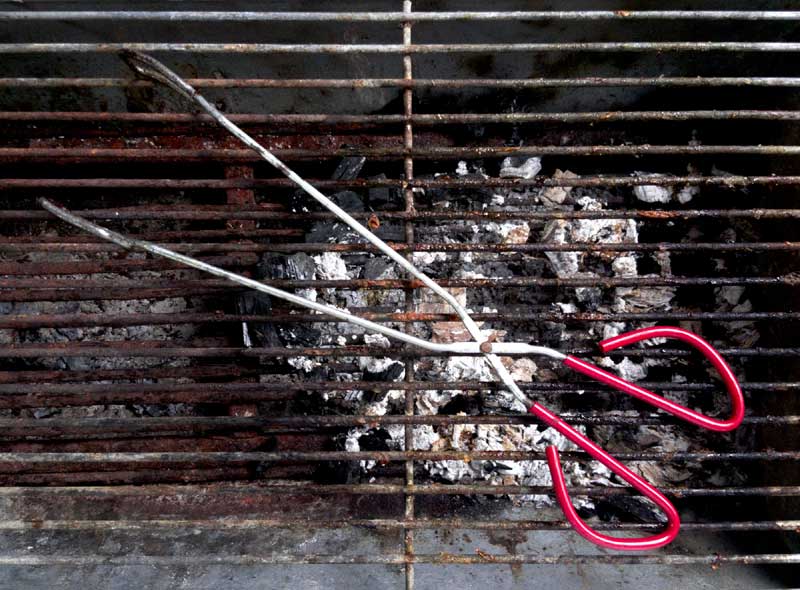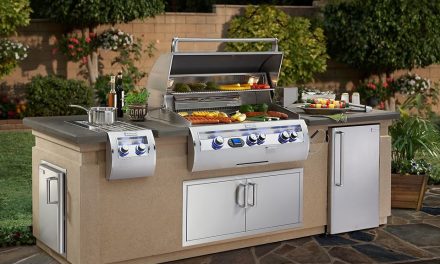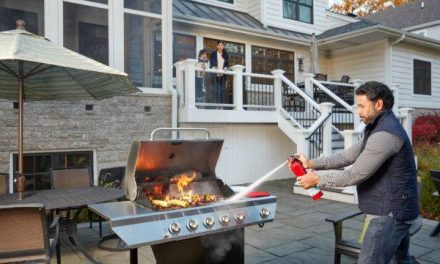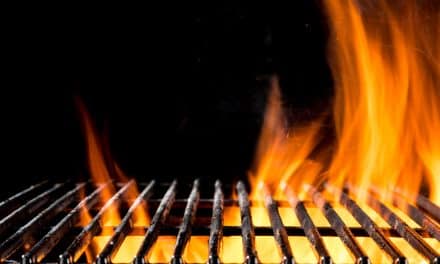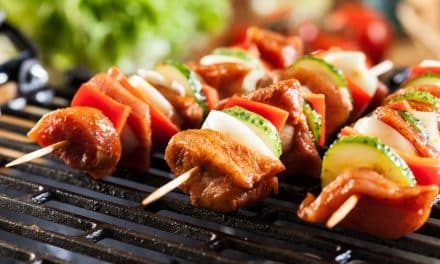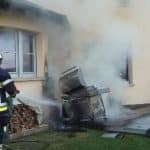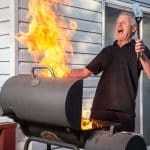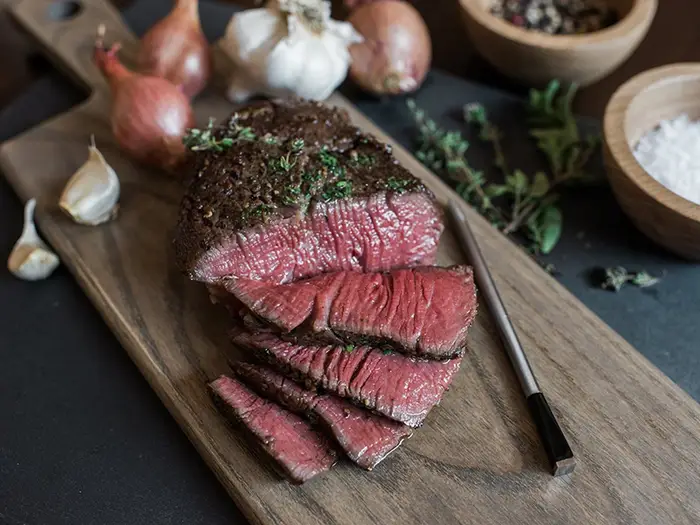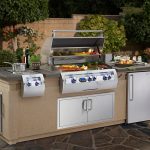If you’re looking for some cringe-worthy content, then you’ve come to the right place! There’s a reason why your mother tried so hard to get you in the habit of cleaning up after yourself.
So what happens if you don’t clean your grill?
Really bad things.
This article is organized by order of magnitude on the “Disgusting” scale, so if you start feeling light-headed, just stop reading. If you’ve got a tough stomach, though, the last point may very well give you nightmares.
Without further ado, here’s what happens when you don’t clean your grill:
You Won’t Notice Maintenance Needs
Cleaning a grill properly is more than just scraping of leftover grease and food. It’s also a chance to take a closer look under the hood (or lid?) and make sure that everything is working properly.
Just like everything else, grills don’t last forever. They need maintenance. The burners can get clogged or deteriorate, rust can start to eat away at the metal, and hoses/gas lines can crack and age.
Professional cleaning is a great opportunity for regularly checking to make sure that everything is ship shape. A professional knows how to disassemble the grill without breaking it, and can get in the nooks and crannies that you probably weren’t even aware of. This, along with inspection and maintenance, can significantly extend the lifespan of your grill!
Grease Stains
Not all the grease burns off. Usually, there will be a grease catch near the bottom of the grill. If this isn’t properly cleaned and maintained, you could easily have an overflow.
Aside from being a fire hazard, this can end up leaking melted fat and spilling it around your grill. If your grill is on a patio or a concrete slab, this could leave a nasty stain that’s nearly impossible to get out.
Your Food Will Taste Funky
This one really shouldn’t come as too much of a surprise. We all know how you get all kinds of leftovers stuck everywhere when you’re done cooking. Obviously, these don’t stay fresh forever.
If you don’t clean your grill, you’ll be exposing fresh meats to old gunk. This happens when pieces of meat stuck to the grill dislodge and stick to what you’re cooking. Also, the leftover grease, fats, and meat pieces that are near the bottom of the grill will eventually go up in smoke, giving your food a fresh (or not so fresh) coating.
You’ll Get Lots of Bacteria
Just imagine what grease and meat chunks would be able to grow after a few months of sitting out in warm weather. You might think that just cranking the heat, or using an “autoclean” function will be enough to kill everything, but this isn’t always the case.
Heat in your grill is concentrated in the cooking area. Below the burners, where fats and grease tend to accumulate, doesn’t get nearly as hot. This might not be enough to kill whatever’s being cultivated there.
This is why a thorough clean, including some disassembly and degreasing, can go a long way in keeping bacteria away from your food.
Cooking With Carcinogens
Many studies have shown that incinerating meat, especially meats with a higher fat content, produces carcinogens.
In particular, PAHs are produced when amino acids combined with creatine are burned down to charcoal. Amino acids and creatine are naturally found in high quantities in red meat, especially in fatty pieces.
When these greases are burnt into charcoal in your grill, the resulting smoke loads up your food with cancer-causing PAHs.
If you want to know more about how you can reduce carcinogens in your grill, make sure you read our article about how they get there and what you can do about them:
Is a Clean Grill a Healthier Grill?
You Could Grow A Mold Farm
If your grill is unused for a while, you might be surprised to find some white fuzzies growing in patches all over. This can be really dangerous!
Mold loves moisture, dark and stuffy places, and grease. This means that, especially if you use a grill cover, you could be creating just the greenhouse conditions that mold is looking for.
The key to cutting out possible mold from taking over your grill is by staying on top of grease buildup. This is mold food.
If you need to get rid of mold, you might want to seriously consider calling in professional help. Many people have an allergic reaction to the spores that can be released from scrubbing, and they can make you really sick.
Don’t use chlorine or solvents. Intense heat is the only thing that will really get kill these spores effectively.
Once the grill cools off, you’ll want to scrub – or even power wash – the whole thing. Everything should be washed with hot soapy water and rinsed thoroughly. If you leave any greasy areas behind, it’s likely that the mold will just spread again.
After that, give it one final hot round on max. This will kill off any final spores that somehow survived the first blast and scrub.
Rodents
I told you I’d save best (or worst?) for last.
Grills make awesome rodent homes. They’re the perfect size, they’re dark and quiet. They’re also full of tasty, greasy snacks if you forgot to scrub.
If you haven’t used your grill in a while, you might have had tenants.
The really disgusting thing is that rats, mice and squirrels haven’t worked out indoor plumbing, and they’re not known for using outhouses.
That means that they leave feces and urine wherever they’ve been.
This is why it’s so critical to give your grill a thorough clean before and after every season. You don’t want to be smoking your meat with roasting rat droppings.
The shocking thing is, this really isn’t uncommon. Rats and mice pretty well eat what we eat. When they smell the greasy deliciousness of an entire season’s worth of grilling, it’s too good to ignore.
There you have it.
If, after reading this, you still don’t feel a need to thoroughly clean your grill, please don’t invite me over for dinner.
If, on the other hand, you do think that it might be a good idea to get a professional to handle it, give us a call!

